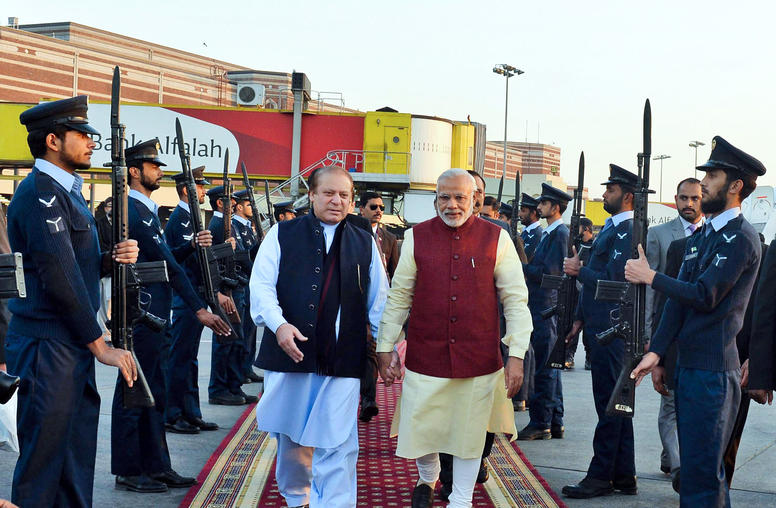
India, Pakistan and South Asia’s New Geopolitics
On May 15, the U.S. Institute of Peace held a discussion of the region’s shifting geopolitics and ways current trends might line up with U.S. interests.
As a national, nonpartisan, independent Institute, the U.S. Institute of Peace draws on our exceptional convening power to create opportunities for diverse audiences to exchange knowledge, experiences, and ideas necessary for creative solutions to difficult challenges. We serve as an important, neutral platform for bringing together government and nongovernment, diplomacy, security, and development actors, and participants across political views. The Institute’s events help shape public policy and priorities to advance peaceful solutions to conflict and strengthen international security.

On May 15, the U.S. Institute of Peace held a discussion of the region’s shifting geopolitics and ways current trends might line up with U.S. interests.
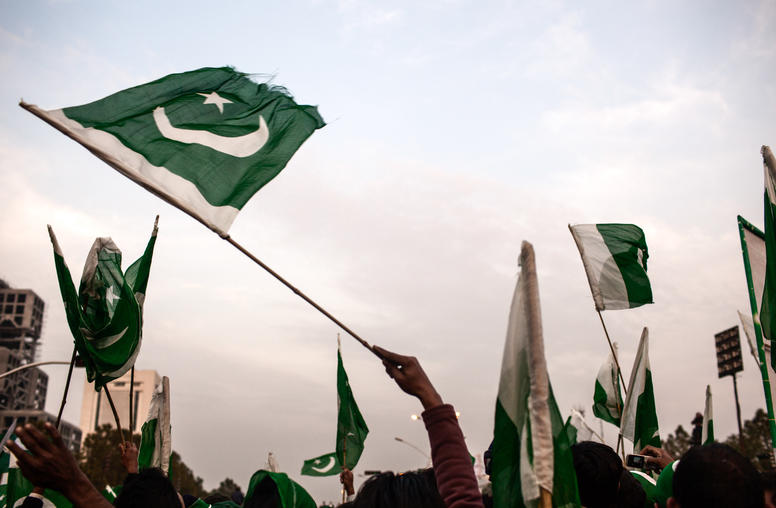
On May 1, former Pakistani Finance Minister Shahid Javed Burki and other experts discussed economic, demographic, climate and security challenges in Pakistan and their implications for U.S. policy.
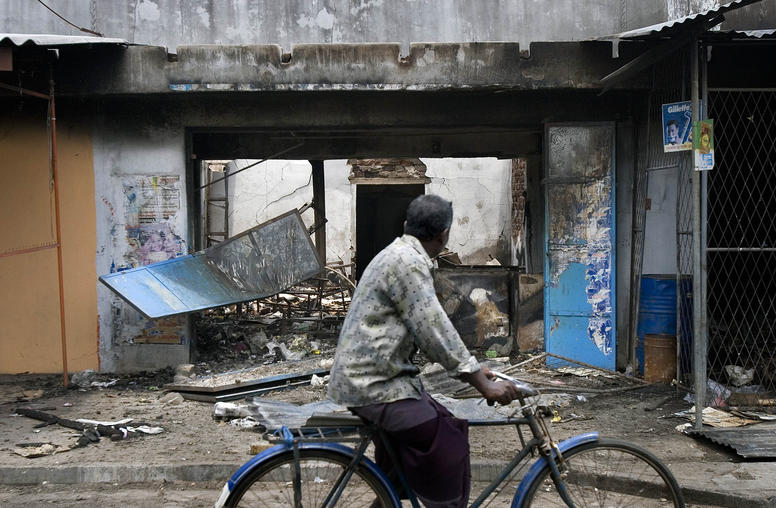
On April 24, the U.S. Institute of Peace and the Center for Global Policy convened experts to discuss emerging trends in extremism across the region, how it impacts states internally and how those governments and the United States should respond.
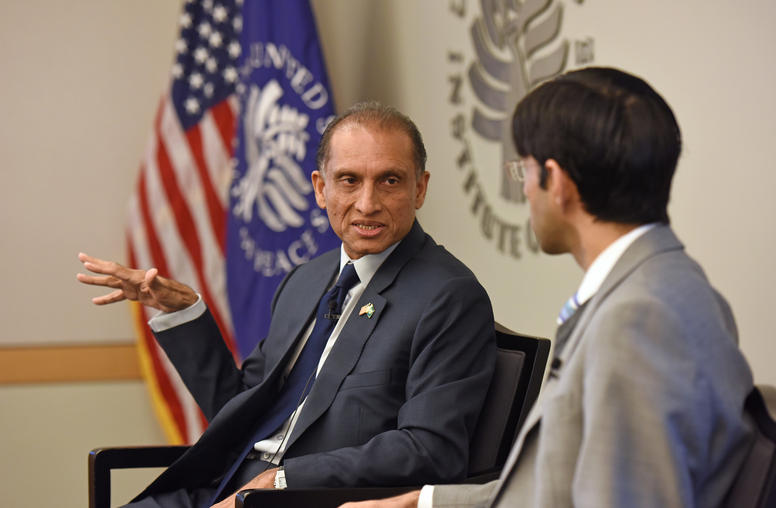
At USIP, Amb. Chaudhry discussed Pakistan’s relationship with Afghanistan and opportunities for U.S.-Pakistani cooperation to promote peace and stability amid the Afghan conflict.
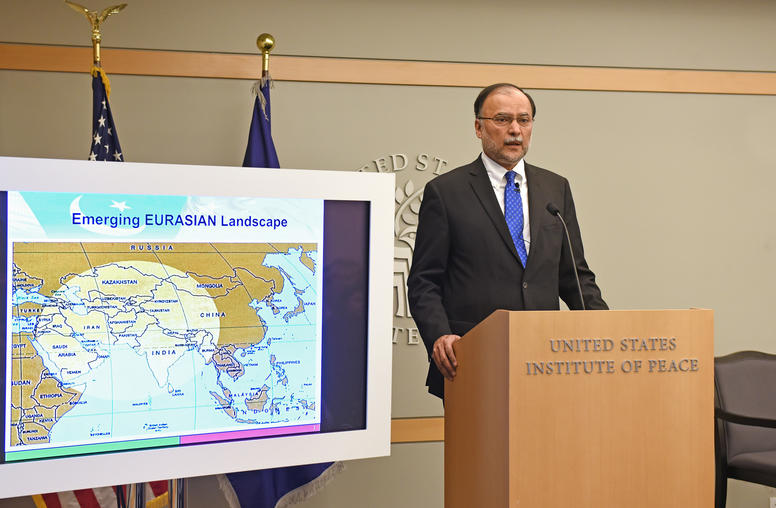
Pakistan’s minister of planning and economic development, Ahsan Iqbal—the cabinet official overseeing CPEC in his country—discussed this massive project at the U.S. Institute of Peace on February 3. Mr. Iqbal spoke to Pakistan’s outlook on its progress, its potential challenges and its implications for U.S.-Pakistan relations.
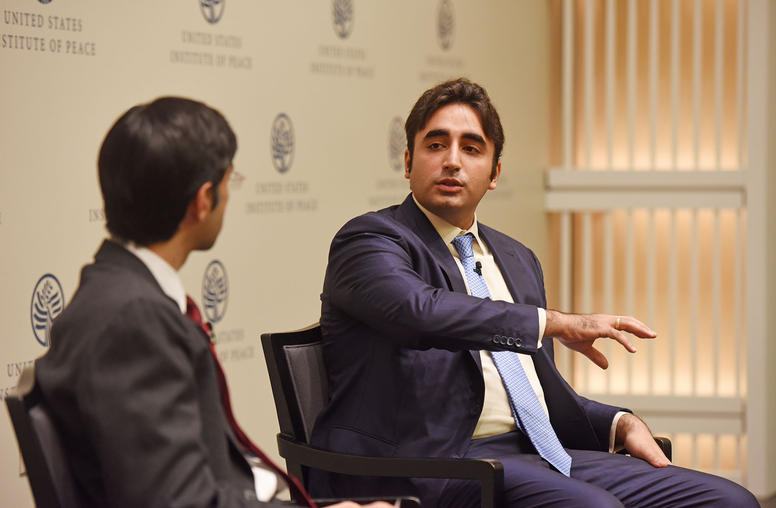
President-elect Trump’s surprise November phone conversation with Prime Minister Nawaz Sharif underscored Pakistan’s continuing importance to U.S. interests in a stable South Asia. The new U.S. administration can expect to see this vital country hold national elections within 18 months. On January 30, the U.S. Institute of Peace hosted a conversation with Bilawal Bhutto Zardari, chairman of the Pakistan Peoples Party, the largest opposition party in parliament. The discussion addressed Pakistan’s serious internal security challenges; debate among Pakistani civilian and military leaders over the country’s domestic counterterrorism initiatives; and Pakistan’s broader political and democratic dynamics. As a new U.S. administration and Congress begin work, Mr. Bhutto Zardari also shared his perspective on the two countries’ relationship.
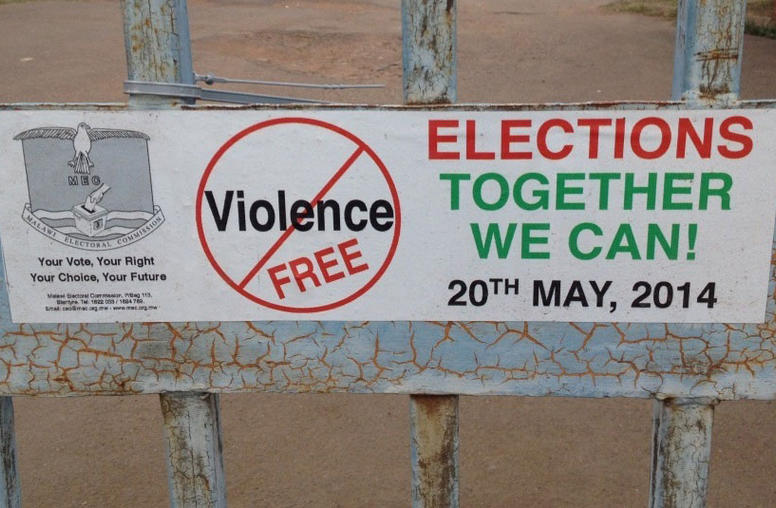
The U.S. Institute of Peace held an online conversation via Twitter to discuss past and upcoming elections at risk of violence. Participants included the contributing authors of Electing Peace, a recent research volume that examines the effectiveness of common practices to prevent election violence.
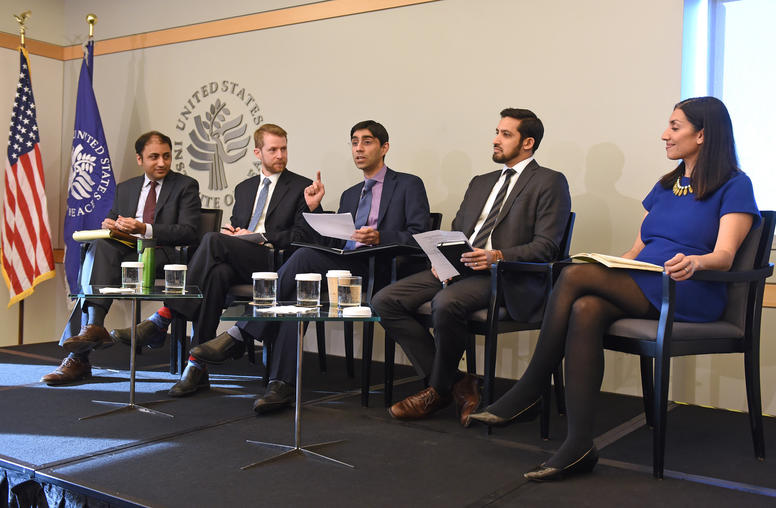
On December 19, USIP hosted a discussion with a diverse group of South Asia experts on the crisis and the potential U.S. diplomatic role under the next U.S. administration.
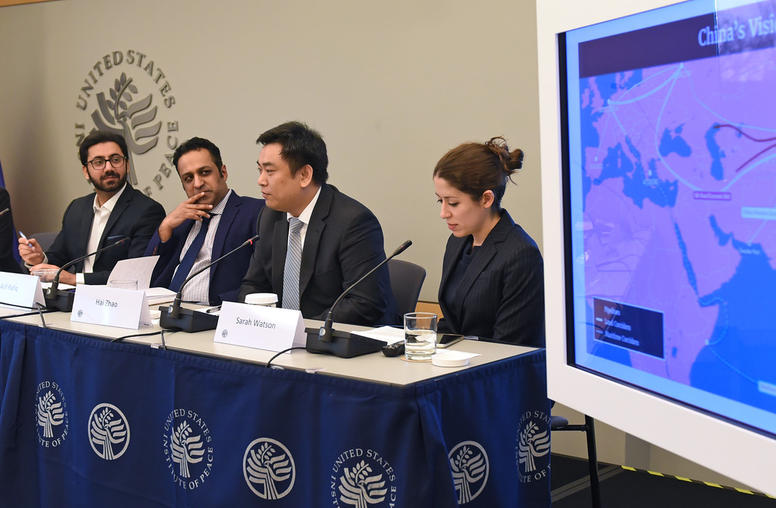
China last year promised $46 billion to build the China-Pakistan Economic Corridor (CPEC)—its strategic trade route to the Indian Ocean. China and Pakistan hope the project’s roads, rails and pipelines will help stabilize Pakistan and the broader region, but some Pakistanis also say it risks feeding corruption and upheaval. The U.S. Institute of Peace convened a group of experts on December 1 to examine this landmark project and its implications for South Asia.
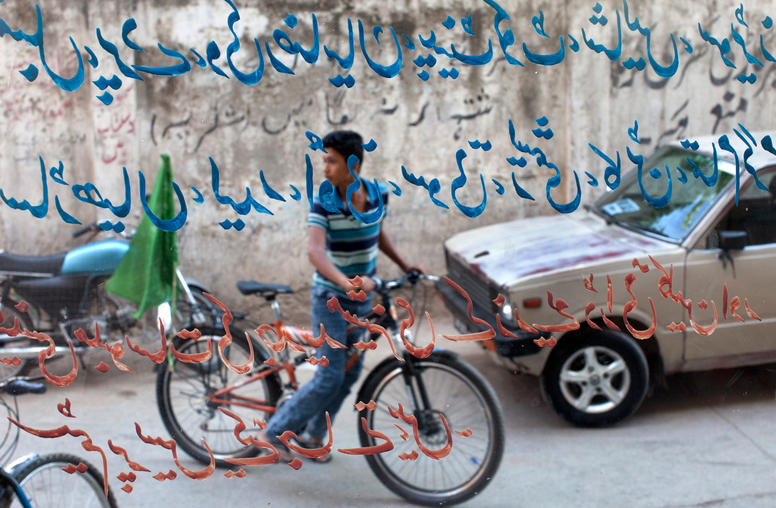
In Sri Lanka, Buddhist ideological extremism fuels negative attitudes about minority ethnic and religious groups. On November 28, U.S. Institute of Peace Jennings Randolph Fellow Rabia Chaudry and other experts discussed the findings of her research on these trends.